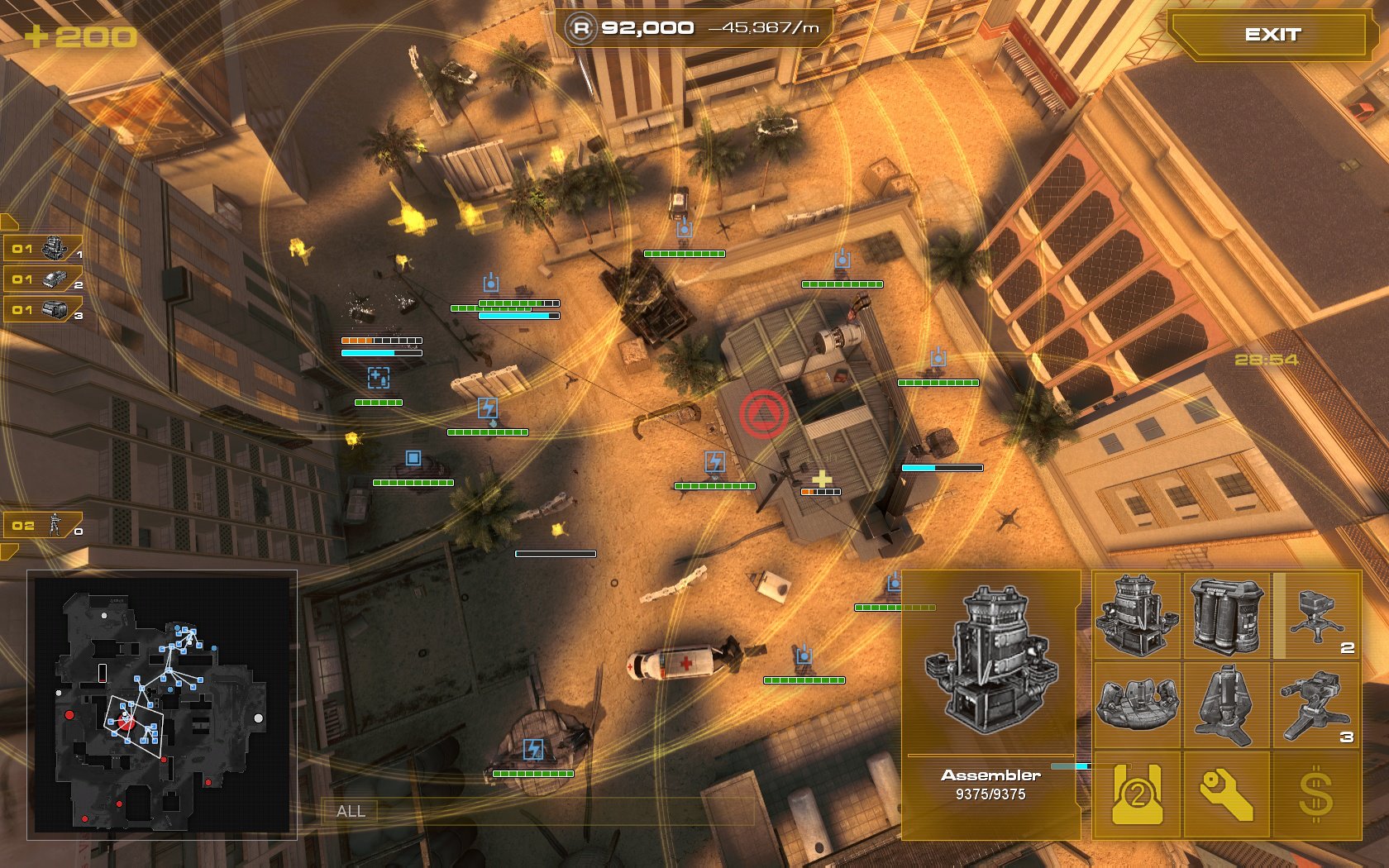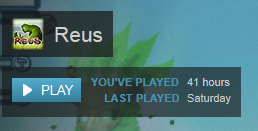On Games Journalism: The Reviewing Process.
Last time we talked about reviewing, we talked about how much time should be put in to a review. But this is by no means the only facet of what goes into a review. So I’m going to pull the veil on my own process, and show you that yes, it is a bit complicated. This should hopefully be useful to readers (Who sometimes don’t get this) and aspiring writers (Who probably don’t know this before writing.) Keep in mind, this doesn’t cover asking for review copy, or what to do when people don’t answer (And, if you’re a freelancer, or otherwise fall under the radar, that’s perfectly possible), just the process of reviewing a game when you’ve got it.
Question The First: Is It “Day One”?
Review Copies are an interesting business, as it means that, a lot of the time, we get the game earlier than anyone else. We can even see patches coming in before the game releases. Not all “Day One” issues are actually “Day One”, but “Days -14 (and “above”) to 1.” But whether you’re reviewing the game on release or not is nonetheless an important question. Especially if you’ve both got hold of the game on release day, and are writing about it on release day. Try to avoid that wherever possible, please. You’re much more likely to be dismissed as a “Day 1” review if you do so.
However, hopefully people are now aware, thanks to Early Access, that yes, games don’t always stop developing the day before launch, and should already know that yes, sometimes, reviewers get the game earlier than you do, to give them time to review it properly.
Nonetheless, there is a kind of sweet spot, and it varies depending on the next question.
Question The Second: How Big Is It?
The majority of the time, you can tell from the genre and the PR mails you’ve gotten, but, as I mentioned in the previous article, that’s not always the case. Nonetheless, it’s an important consideration. Since we’ve already dealt with “how long”, we’ll simply note that this is an important consideration into how much playtime you put in, and how long it should take.
Question The Third: What Am I Meant To Be Looking At?
This is the meat. As much as you humanly can. For example, you start to get a feel, over time, for a “good” or “bad” UI (My general guide: If it blocks important information/controls, or takes more than three interactions to get to an option, it’s “bad”), and can spot that, and some other things, very quickly. Other things, however, you need to digest, to think about. This is why taking breaks is important. Not only are you doing a thing that’s good for you (Not staring at a monitor for hours on end), unless those breaks are completely ignoring thinking about the game, they still serve an important work function.
You want to think about the writing, how it’s paced, how it treats people, what it’s trying to say. You want to think about the visuals, and the music. You want to think about the numbers, and the gears, how you’re feeling (We’ll get back to that) versus how the game wants you to feel, and how well or badly it all fits together. A developer could have the best combat system in gaming history, but it wouldn’t count for much if you don’t know what the buttons do. Music, taken on its own, can be great, but again, if it doesn’t fit what you’re doing, and makes no sense even after consideration? It’s not so good. Disconnects between elements can vary in importance, and sometimes, they’re deliberate.
Trying to break the game is also sometimes helpful, although risky. For tips and tricks on things that potentially work, you can’t go wrong with speedruns. Speedruns past and present show that there’s often a way to leave the map.
You’ve also got to consider who it’s aimed at. Is it for someone who likes long games? Short ones? Button mashers? Who would like this, and who wouldn’t? This becomes important when you get to the writing stage, and it’s something you’ll want to think about. It’s also helpful to put yourself in the position of the new player, the person who’s never played videogames. It’s difficult, I know, but to review well, you also have to at least try to consider viewpoints that seem alien to you at times. So ignore the tutorials (if you can) the first time you play, and try to work out how easy it is to learn things without it. Because, believe me, there are players who ignore tutorials, even when it’s against their best interests to do so.
Sometimes, there will be things you’ll miss. When you’ve written a review, go back and check things. Because you’ll feel pretty bloody stupid if you missed something obvious, and it affects your review badly.
Problem The First: Oh Shit, It Crashed/Hung/I Fell Through The World!
This is a pretty common problem, especially with early copies. When this happens, you can almost guarantee you aren’t getting it out on day one (Not that you should, but some places really put the pressure on for that.) Check with other reviewers, if you know any. Put your computer through a checkup, especially in the case of a BSOD. This is only the first step, however. The second step is why you have little chance of a Day One Review.
Confirm that other people have had the problem. Confirm whether steps are being taken. If at all possible, confirm that they have been taken. I know it means slogging through pages of vitriol on Steam and official forums (When they exist), and waiting for said notes to crop up, but it can sometimes be rewarding. When I was researching problems I’d encountered playing Blur? I found people had released beta footage. And they showed many of the exact same problems I was encountering. During my re-review (More on that later), I found that, increasingly, the same replies were being posted, and talk was already underway on a sequel (Not always a sign that a game has been “put to bed”, but it can be). Together, those things didn’t exactly paint the most flattering picture, even considering that three months is not a terribly long time to be able to fix, say, connection issues (You’d think it wasn’t, but no, that sort of dev problem can often be a very thorny one.)
Besides, you’ll often get a better idea of what causes it (A thing that could be useful to mention) and what fixes it (Not guaranteed, but nice when it does happen). And you’ll have continued in the fine tradition of checking first.
Problem The Second: The Game Is Soooo Good/Bad!
You might not think this is a problem. But this can just as much be a result of not looking or not seeing as it is of no flaws or too many flaws. It’s sometimes difficult to achieve balance in a review, but it’s an ideal you should strive for. I can’t think of a single game completely without flaw. There’s always a reason someone won’t like it, even if it’s the one of certain people not liking that type of game (Which we’ll come back to in the Writing part). Similarly, I can think of few games that are completely irredeemable (Limbo of the Lost would be one of the few in this regard.) Another part of this is…
Question The Fourth: What Mood Am I In?
You are going to have a personal, subjective opinion on whatever game you’re reviewing. That’s without doubt. But if you’re in the wrong sort of mood, it’s going to affect your writing. An example in my case is that I never review when I’m depressed. I know all too well that slights will get magnified, that it’ll feed back on itself, and that I’m not going to check as well as I’d like. This doesn’t exactly do wonders for my workflow, but it ensures that I’m not going to be harder on a game than I’m meant to be. See also being drunk, being angry, or being tired. Yes, with many places there are deadlines… But your health is important, not only for you, but for your work.
Now, with all of those things considered, we come to writing the review. Take notes as you go, working them into a first draft. Most of the time, this first draft will not be useful as a review… But it’ll order your thoughts. And then, a few more questions to think about while writing. All the while, you’ll want to look for spelling errors. You won’t find them all, but the more you find, the less hassle for either you (If you self publish) or your editor (If you write on commission/contract.)
Question The Fifth: What Am I Focusing On?
It is a safe bet that, even if people didn’t hate spoilers, you’re not going to write a blow by blow analysis of the entire game from start to finish. You have, at most, 3500 words for a review (More when you’re writing later, more thoughtful articles, but reviews are generally between 500 and 2500 words. It varies by publisher.) So what are you going to focus on? Extremes are generally on the list. If something is particularly noteworthy, or particularly cringeworthy, it’s something you want to mention. But that list is, excepting big games with lots of problems or particularly praiseworthy elements, generally fairly short. Even so, you have limits to what you can say. Pick what you’re talking about wisely.
Question The Sixth: Experiences or “Mechanics”?
There’s different schools of thought on the M word, including whether it’s really a useful word at all. Is the writing a mechanical device of the game? Is the UI? Are these, individually, important to mention? Generally, the answer is “Not on their own”, which is why we have reviews that focus on the stories, the experiences. Whether readers or the writer like it or not, how you feel during a game is a factor, as many games try to make you feel a thing. The Last of Us, in terms of actual rules and numbers, is not vastly different from many other modern games. No, it’s the writing, the music, the voices, what’s being said and what you feel versus what the game’s developers want you to feel that’s notable. But purely experiential writing can, done poorly, confuse. Purely “mechanical” writing fails to take into account how things fit together, and ignore the feels and thoughts to their detriment. Ideally, you want a mix. How much of that mix is really down to your own style, and there’s no guarantee you’ll achieve the right mix for a particular game.
I wish there was… But it’s not guaranteed. Do the best you can.
Question The Seventh: Does It Flow?
Flow of writing is important. And it’s not just about rhythm, how stilted or natural it sounds. It’s about point to point to point in a conclusive, thematically linked “argument”. It’s like a debate. It’s also part of the reason I don’t like compartmentalised reviews (Even though I’ve written them many a time.) They don’t acknowledge that you can segue from the audio, to the play, to the writing, and back to the audio. Because you can. And often, you have to, if you want to explain a thing well.
The rhythm, thankfully, is an easy one to edit. Read the review out loud. Notice where you’re actually pausing, and for how long, in what you read. As you’re reading, think about whether you’re actually saying the things you want to say.
Then go back and do it again until you’re at least relatively happy. I’m rarely more than “relatively” happy with a review, but other folks do seem to consistently disagree with my own opinion on that, so “relatively” happy is good. Of course… You’re still not done.
Question The Eighth: Am I Being Fair?
Remember how I said you don’t want to review when angry, or depressed, or drunk? Yeah, the same applies at every step, and you should be questioning yourself at every step as well. Because sometimes, we Get Personal. As I’ve said before, game devs are human, and companies are not people. Nor, in fact, are games themselves. Talking about what a company or a game has done, good or bad, is okay. Framing it in terms like “[Company] are evil” or “[Company] wouldn’t be able to develop their way out of a brown paper bag” is Getting Personal. True, the folks who actually fucked up are being told they fucked up somehow. But you’re also putting folks who did the best job they could, and were not responsible for the fuckup you’re talking about, in the same sentence.
You didn’t mean it that way? Well, boo-hoo, but unfortunately, you wrote it that way. Similarly, consider scale in what you’re saying. A game constantly crashing is definitely bad, and can be described as definitely bad. But some problems really are niggles, small problems, and if you’re going to mention them, make sure you say that.
Hopefully, when you’ve considered these things, you’ll have, at the end, a fair review that tells people what they can expect. It won’t have everything. It can’t. But there’ll be enough there that people can get an idea, and hopefully look at other perspectives on the same thing.
Now, it’s important to note that this article is just about actually writing a review. It’s not about any ethical problems that might come up. It’s not about interviews, or op-eds (Although it can be useful for those, situationally). All of these words, all of these considerations, are what goes into a single review. And in the case of many of these questions, there are nuances I could go over, edge cases and specific practices for specific types of games.
Still think reviewing is easy? I sure hope not, I’ve tried pretty hard to show you otherwise. For other perspectives on this, there’s Cara Ellison’s “How To Write About A Game“, Erik Peterson’s “You Got Game, But Can You Write?” (Although I’m not sure the words “Lucky Bastards” can be applied to reviewers…), and the book “Critical Path: How To Review Games For A Living“, by Dan Amrich, among many others.








